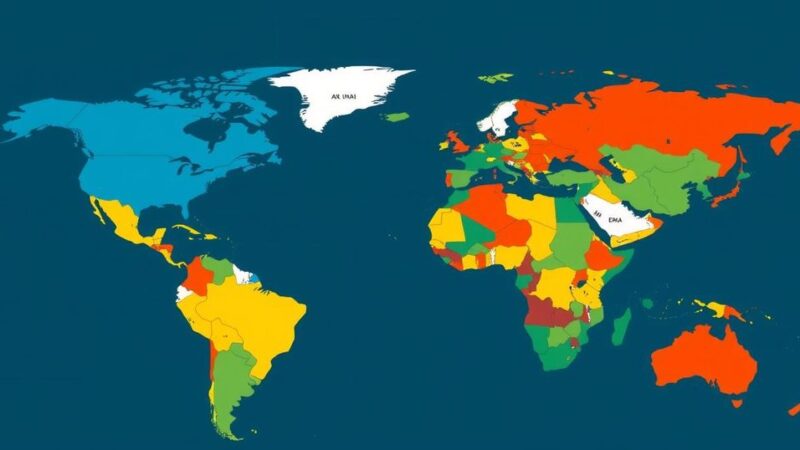September 2024 has been recorded as the second warmest September globally, as reported by the Copernicus climate monitoring agency. This year is likely to become the hottest on record due to increasingly severe weather events triggered by rising global temperatures. Extreme rainfall and storms have negatively impacted various regions, leading to catastrophic consequences and further emphasizing the urgent need for climate action.
In September 2024, the global temperature reached its second-highest recorded level for the month, according to the EU’s climate monitoring agency, Copernicus. This unprecedented warmth occurs during a year that is substantially likely to eclipse previous temperature records, leading climate scientists to anticipate that 2024 may become the hottest year on record. The Copernicus Climate Change Service revealed that extreme weather conditions, including severe rainfall and storms, are increasingly prevalent as global temperatures continue to rise due to climate change. Last month, the average global temperature was reported to be just below that of September 2023, which itself was marked as the hottest on record. The implications of global warming extend beyond mere temperature increases; they encompass the broader impacts of heightened heat retention within the atmosphere and oceans. With warmer air holding more moisture and elevated ocean temperatures contributing to increased evaporation, rainfall patterns have shifted, resulting in intensified storms and unexpected deluges. Samantha Burgess, Deputy Director at the Copernicus Climate Change Service, noted, “The extreme rainfall events of this month, something we are observing more and more often, have been made worse by a warmer atmosphere.” In September, a series of climatic disturbances were reported, including Hurricane Helene in the southeastern United States, Typhoon Krathon impacting Taiwan, and Storm Boris causing widespread flooding in central Europe. Furthermore, regions such as Nepal, Japan, and several areas in Africa experienced catastrophic flooding. Copernicus indicated that conditions that deviate significantly from the normal climate were also reported in parts of Africa, Russia, China, Australia, and Brazil, with Pakistan suffering severe consequences from monsoon rains. From January to September 2024, temperature records have been broken consistently, reinforcing the conclusion that 2024 is poised to be the warmest year documented. Copernicus noted that fourteen of the past fifteen months have experienced temperatures at least 1.5 degrees Celsius above the averages established during the pre-industrial period. While this increase does not constitute a violation of the Paris Agreement’s climate objectives, which aims to cap warming well below 2C, scientists warn that breaching the more stringent 1.5C target seems increasingly elusive. According to the United Nations Environment Programme, current global emission trends, particularly those from fossil fuel combustion, could lead to a potential temperature rise of as much as 2.9C by the year 2100. Despite efforts to combat climate change, greenhouse gas emissions have increased in recent years. Copernicus has maintained climate records since 1940; however, various other climate data sources, such as ice cores and tree rings, indicate that the current climatic conditions are likely the warmest the Earth has experienced over the past 100,000 years.
The context of the report is rooted in the ongoing discourse regarding climate change and its observable effects on weather patterns across the globe. As average global temperatures continue to rise due to human-induced emissions of greenhouse gases, increasing frequency and severity of extreme weather events serve as indicators of this significant climate shift. The Copernicus Climate Change Service employs extensive data collection methods to monitor global temperatures and provide analysis of trends, highlighting the urgent need for action to mitigate climate impact.
The findings for September 2024 as reported by Copernicus underline a growing climate emergency, characterized by record-breaking temperatures and increasingly severe weather events. With data indicating that the current trajectory of emissions could lead to significant temperature rises by the end of the century, the need for immediate and substantial reductions in greenhouse gas emissions is paramount. Reformative action at both international and local levels is crucial to address these unfolding climate challenges and to strive toward the objectives set out in international climate agreements.
Original Source: www.rfi.fr






